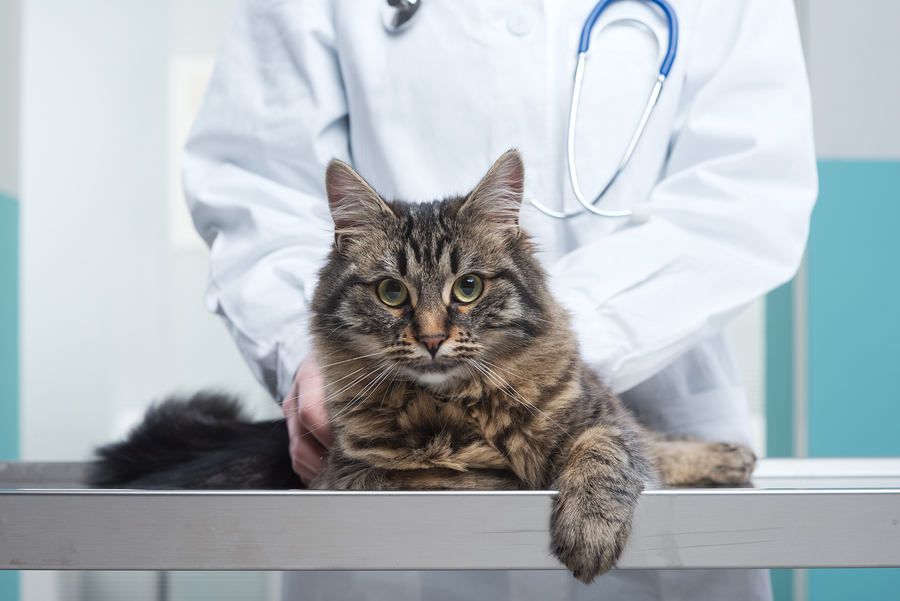Finding the best veterinary care for your cat care is critical. The veterinarian you choose will be a crucial contributor to your cat’s wellbeing throughout life and should be someone you can work with to ensure that your cat receives the best care.
But what are the indicators to look for when vetting a veterinarian? Here are some ideas, gathered from my 20-plus years of caring for cats with an assortment of veterinarians.
Good Management
Put your senses of sight, smell, and hearing in gear when you walk in the door. Your observation skills, your nose, and what you hear from staff, other clients, and animals in the lobby will all provide you with impressions about a veterinary practice you are considering.
Is the clinic clean? Do staff members take steps to ensure pet comfort, such as separating dogs and cats, even if it’s just with a visual barrier, or taking animals into an exam room right away? Do the staff seem happy to be there, and do they radiate that good attitude when dealing with animal and human clients?
Do records and billing seem organized? Are queries to staff answered clearly and within a reasonable amount of time? Does the practice seem to care about customer service? Do administrators and veterinary personnel work together seamlessly, at least from a customer perspective?
Make an impromptu visit sometime when you don’t necessarily have an animal to bring in, perhaps to pick up a retail item. How do operations seem to be flowing at that moment? Is the staff harried or on top of their game? (Recognize that a day at a busy vet office is often stressful and fast-paced, but use your intuition. Are you picking up good vibes, or not-good vibes…and why?)
Are Cats Respected?
I have had instances in the past where it seemed that the veterinarian and staff regarded cats as second-class citizens. What does your veterinarian know about cats? If it seems that you are more interested in or possibly more knowledgeable about some aspect of cat care than a potential veterinarian might be, that may be a warning sign.
Take a look at the retail area, if the practice has items for sale. Are there cat-related items or food for sale? Are they things that you would consider buying?
More important, how does the veterinarian interact with your cat? Do they understand feline quirks and qualities? Do they know how to put a cat at ease in a veterinary situation? Is it obvious that the veterinarian likes cats? Watch interactions between your veterinarian or the staff when they handle or interact with your cat. Remember that cat-savvy veterinary teams may play hard-to-get or act aloof with your cat in an attempt to seem less threatening, so don’t be put off if they don’t seem to give your cat a lot of love.
Question and Answer
Does the veterinarian answer your questions fully? Be prepared with good questions ahead of time; it’s easy to forget what you wanted to ask about when you are in the middle of a visit. And remember that asking good questions is just as important as finding a veterinarian who will take time to give you good answers.
Your veterinarian should not make you feel rushed when you have questions and should not indicate that your questions are a bother. You are the voice for your cat, and your veterinarian needs to allow space for that to happen. Practice good observation of your cat at home, so you can share your observations with the veterinarian and help add to the picture of your cat’s care.
If you have an idea for something related to your cat’s care or diagnosis, is your veterinarian willing to take it into consideration? Is your veterinarian willing to collaborate with other providers or specialists if needed and keep you in the loop?
While you may actually have to experience a certain amount of care before you can form an opinion about your veterinary provider, these criteria can give you a sense of the quality of the veterinary care over time. Your veterinarian should always fully explain procedures, options, and choices, and you should feel that you are being listened to without being rushed.
Word of Mouth
Referrals can be a great way to evaluate a business. Ask friends, neighbors, or coworkers if they use a particular veterinary practice and what they think about it. Ask why they like the practice. Consider the source. You’ll probably want to listen to the opinion of someone whose standard of cat care is similar to yours.
Your veterinarian is a critical member of your cat’s team. Make sure you’re using your powers of observation to vet your vet!
This article was reviewed/edited by board-certified veterinary behaviorist Dr. Kenneth Martin and/or veterinary technician specialist in behavior Debbie Martin, LVT.








